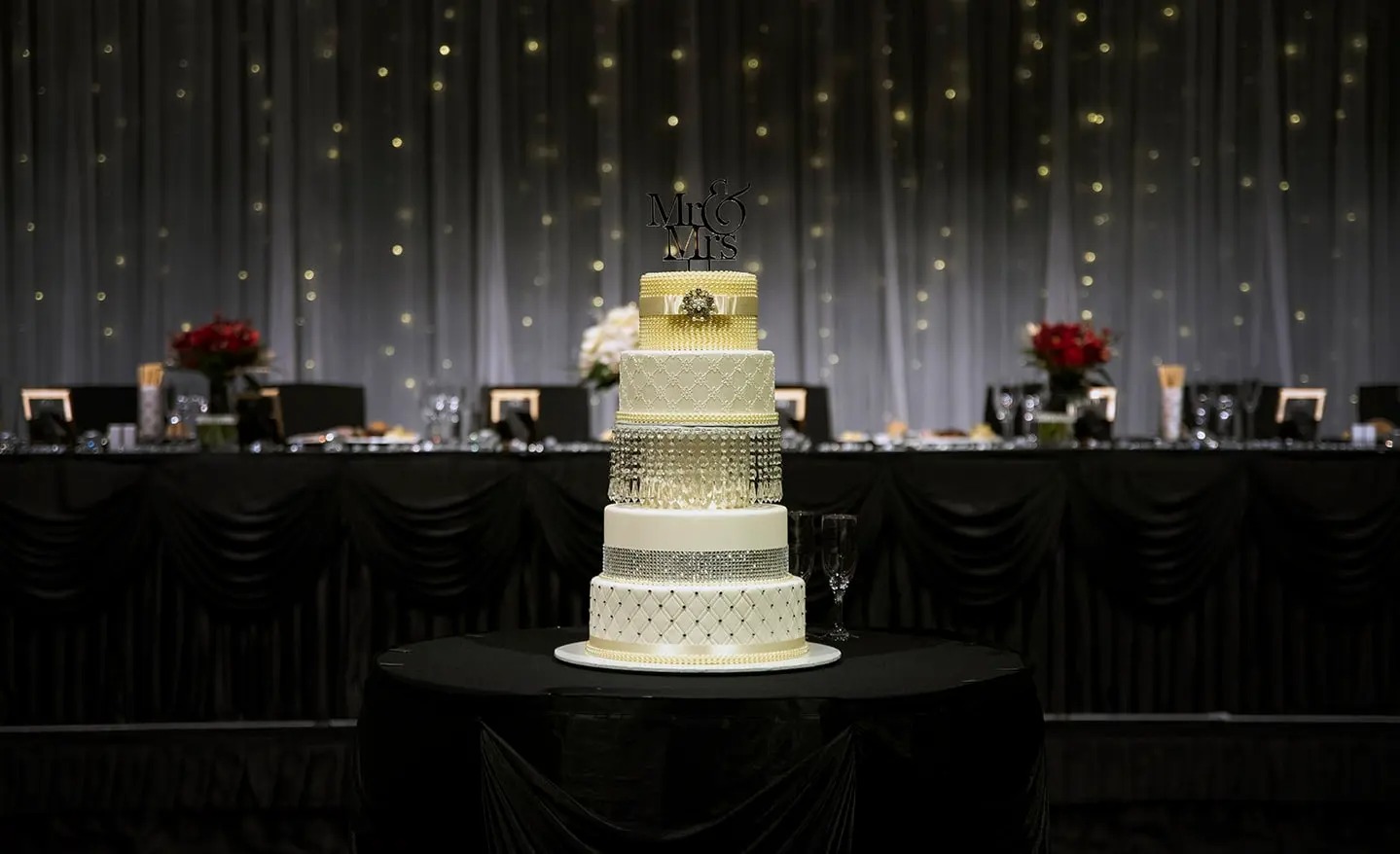
Why Wedding Insurance is Important
Planning a wedding is an exciting time for couples, filled with dreams of a perfect day surrounded by loved ones. However, amidst all the excitement, it’s important to consider the potential risks and losses that can occur. This is where wedding insurance comes in. Wedding insurance is a type of insurance policy that provides coverage for various aspects of your wedding, protecting you from financial loss in case of unforeseen circumstances. From venue mishaps to vendor cancellations, wedding insurance can provide peace of mind and protect your investment in your special day.
Without wedding insurance, couples are left vulnerable to a range of potential risks and losses. For example, if your venue suddenly goes out of business or your caterer fails to show up, you could be left scrambling to find a last-minute replacement and potentially lose out on deposits and payments already made. Additionally, if extreme weather conditions force you to cancel or postpone your wedding, you could be faced with significant financial losses. Wedding insurance helps to mitigate these risks and provides financial protection in case of unexpected events.
What Does Wedding Insurance Cover?
Wedding insurance typically covers a range of potential risks and losses that couples may face. Here are some common coverage areas of wedding insurance:
1. Cancellation or Postponement: This coverage protects you in case you need to cancel or postpone your wedding due to unforeseen circumstances such as illness, extreme weather, or military deployment. It can reimburse you for non-refundable deposits and payments made to vendors.
2. Vendor Failure: This coverage protects you in case one of your vendors fails to deliver their services as agreed upon. For example, if your photographer doesn’t show up or your florist goes out of business, this coverage can reimburse you for any losses incurred.
3. Venue Mishaps: This coverage protects you in case there are issues with your wedding venue, such as double booking or damage to the property. It can cover the cost of finding an alternative venue or any necessary repairs.
4. Wedding Attire and Rings: This coverage protects you in case your wedding attire or rings are lost, stolen, or damaged. It can provide reimbursement for the cost of replacement or repair.
5. Liability Insurance: This coverage protects you in case someone is injured or property is damaged during your wedding. It can cover legal fees and any damages awarded.

How to Choose the Right Wedding Insurance Policy
When choosing a wedding insurance policy, it’s important to consider a few key factors to ensure you select the right coverage for your needs. Here are some tips to help you choose the right policy:
1. Assess Your Needs: Before purchasing wedding insurance, take the time to assess your needs and determine what coverage areas are most important to you. Consider the potential risks and losses you may face and prioritize the coverage accordingly.
2. Research Different Providers: Take the time to research different wedding insurance providers and compare their policies. Look for providers that have a good reputation and positive customer reviews. Consider factors such as coverage limits, deductibles, and exclusions.
3. Read the Fine Print: Before purchasing a policy, make sure to read the fine print and understand the terms and conditions. Pay attention to any exclusions or limitations that may affect your coverage.
4. Consider the Cost: Wedding insurance policies can vary in cost, so it’s important to consider your budget when choosing a policy. Compare the cost of different policies and consider the coverage provided to determine if it is worth the investment.
5. Seek Professional Advice: If you’re unsure about which policy to choose, consider seeking advice from a wedding planner or insurance professional. They can help guide you through the process and ensure you select the right coverage for your needs.
The Cost of Wedding Insurance: Is It Worth It?
The cost of wedding insurance can vary depending on factors such as the coverage limits, deductibles, and the overall cost of your wedding. On average, wedding insurance can cost anywhere from $100 to $1,000, with most policies falling in the $200 to $500 range. While this may seem like an additional expense on top of all the other wedding costs, it is important to consider the potential financial losses that can occur without insurance.
Weddings are a significant financial investment, with couples often spending tens of thousands of dollars on their big day. Without wedding insurance, all of that money is at risk in case of unforeseen circumstances. For example, if your venue suddenly goes out of business and you lose out on a $5,000 deposit, that is a significant financial loss. Wedding insurance provides a safety net and can help protect your investment in your wedding.
Additionally, wedding insurance can provide peace of mind during the planning process. Knowing that you are financially protected in case of unexpected events can alleviate stress and allow you to focus on enjoying the wedding planning experience. It’s a small price to pay for the peace of mind that comes with knowing your investment is protected.

How to File a Claim with Your Wedding Insurance Provider
In case you need to file a claim with your wedding insurance provider, it’s important to know the steps involved and the necessary documents and information needed. Here is a step-by-step guide on how to file a claim:
1. Contact Your Insurance Provider: As soon as you become aware of a potential claim, contact your wedding insurance provider to notify them of the situation. They will guide you through the claims process and provide you with the necessary forms and information.
2. Gather Documentation: Collect any documentation related to the claim, such as contracts, receipts, and photographs. This will help support your claim and provide evidence of the losses incurred.
3. Complete the Claim Form: Fill out the claim form provided by your insurance provider, providing all the necessary information and details of the claim. Be as thorough and accurate as possible to ensure a smooth claims process.
4. Submit Supporting Documents: Along with the claim form, submit any supporting documents that are required by your insurance provider. This may include copies of contracts, receipts, photographs, or any other relevant documentation.
5. Follow Up: After submitting your claim, follow up with your insurance provider to ensure that it is being processed. Keep track of any communication and documentation related to the claim.
6. Await the Outcome: Once your claim has been submitted, await the outcome from your insurance provider. They will review the claim and determine if it meets the requirements for coverage. If approved, they will provide reimbursement for the losses incurred.
Common Wedding Disasters Covered by Insurance
Wedding insurance can provide coverage for a range of common wedding disasters. Here are some examples of disasters that are typically covered by insurance:
1. Extreme Weather: If your wedding needs to be canceled or postponed due to extreme weather conditions such as hurricanes, blizzards, or floods, wedding insurance can provide coverage for the costs associated with rescheduling or canceling the event.
2. Vendor Cancellations: If one of your vendors fails to show up or cancels at the last minute, wedding insurance can provide coverage for any losses incurred. This can include reimbursement for deposits and payments made to the vendor, as well as the cost of finding a replacement vendor.
3. Illness or Injury: If you or your partner become ill or injured and are unable to proceed with the wedding as planned, wedding insurance can provide coverage for the costs associated with canceling or postponing the event.
4. Venue Issues: If there are issues with your wedding venue, such as double booking or damage to the property, wedding insurance can provide coverage for the costs of finding an alternative venue or any necessary repairs.
5. Lost or Damaged Wedding Attire: If your wedding attire or rings are lost, stolen, or damaged, wedding insurance can provide coverage for the cost of replacement or repair.

How Wedding Insurance Can Help You Avoid Financial Loss
Wedding insurance can help couples avoid significant financial loss in case of unexpected events. Here are some ways in which wedding insurance can provide financial protection:
1. Reimbursement for Deposits and Payments: If you need to cancel or postpone your wedding, wedding insurance can provide reimbursement for non-refundable deposits and payments made to vendors. This can help mitigate the financial loss and allow you to reschedule or find alternative vendors without incurring additional costs.
2. Coverage for Vendor Failures: If one of your vendors fails to deliver their services as agreed upon, wedding insurance can provide coverage for any losses incurred. This can include reimbursement for deposits and payments made to the vendor, as well as the cost of finding a replacement vendor.
3. Protection Against Venue Mishaps: If there are issues with your wedding venue, such as double booking or damage to the property, wedding insurance can provide coverage for the costs of finding an alternative venue or any necessary repairs. This can help avoid additional expenses and ensure that your wedding can proceed as planned.
4. Replacement or Repair of Wedding Attire and Rings: If your wedding attire or rings are lost, stolen, or damaged, wedding insurance can provide coverage for the cost of replacement or repair. This can help avoid the financial burden of having to purchase new attire or rings.
Protecting Your Wedding Investment with Insurance
Planning a wedding involves a significant financial investment, with couples often spending tens of thousands of dollars on their big day. Wedding insurance can help protect this investment and provide financial security. Here’s how wedding insurance can protect your wedding investment:
1. Reimbursement for Deposits and Payments: If you need to cancel or postpone your wedding, wedding insurance can provide reimbursement for non-refundable deposits and payments made to vendors. This can help protect your investment and allow you to reschedule or find alternative vendors without losing out on the money already spent.
2. Coverage for Vendor Failures: If one of your vendors fails to deliver their services as agreed upon, wedding insurance can provide coverage for any losses incurred. This can include reimbursement for deposits and payments made to the vendor, ensuring that you are not left out of pocket.
3. Protection Against Venue Mishaps: If there are issues with your wedding venue, such as double booking or damage to the property, wedding insurance can provide coverage for the costs of finding an alternative venue or any necessary repairs. This can help protect your investment in the venue and ensure that your wedding can proceed as planned.
4. Replacement or Repair of Wedding Attire and Rings: If your wedding attire or rings are lost, stolen, or damaged, wedding insurance can provide coverage for the cost of replacement or repair. This can help protect your investment in these items and ensure that you have the necessary attire and rings for your wedding day.

Tips for Planning a Stress-Free Wedding with Insurance
Planning a wedding can be a stressful experience, but with wedding insurance, you can have peace of mind knowing that you are financially protected in case of unexpected events. Here are some tips for planning a stress-free wedding with insurance:
1. Start Early: Purchase wedding insurance as early as possible in the planning process. This will ensure that you are covered from the moment you start making deposits and payments to vendors.
2. Read the Policy: Take the time to read and understand your wedding insurance policy. Familiarize yourself with the coverage areas, limits, and exclusions. This will help you know what is covered and what is not, allowing you to plan accordingly.
3. Keep Documentation: Keep copies of all contracts, receipts, and other relevant documentation related to your wedding. This will be important in case you need to file a claim with your insurance provider.
4. Communicate with Vendors: Keep open lines of communication with your vendors and inform them that you have wedding insurance. This will ensure that they are aware of the coverage and can provide any necessary documentation or information in case of a claim.
5. Stay Organized: Stay organized throughout the planning process by keeping track of all payments, contracts, and communication with vendors. This will make it easier to file a claim if needed and ensure that you have all the necessary information.
Why Every Couple Should Consider Wedding Insurance
In conclusion, wedding insurance is an important investment for every couple planning their big day. It provides financial protection and peace of mind in case of unexpected events or disasters. From vendor cancellations to extreme weather, wedding insurance can help couples recover from potential losses and protect their investment in their wedding. By choosing the right policy, couples can ensure that they are covered for the specific risks and losses they may face. So, before you say “I do,” consider purchasing wedding insurance to protect your special day.
